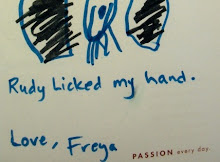 |
| Garden House's new roof! |
Yes it has been three years since I last wrote. Some readers might wonder what caused the hiatus. A medical problem? A long international trip? All but complete disinterest? None of the above. I've not been sick, been on a trip, or lost interest in the Garden House. I've devoted myself to several projects which have sucked armloads of bandwidth. One involved getting a new roof on the Garden House, a metal roof that will easily last several decades, assuring dry and fire-safe comfort to guests.
 |
| The old roof |
Another project involves a relationship. This one with a piano. I'm taking lessons from one of the best jazz pianists on the west coast. It's been a couple of years so far; I feel like I've learned to pull myself up on a chair and attempting to take a few steps before I crash back to the floor. In order to compound my musical bandwidth challenge, I recently took up lessons on/with a bass.
The big bandwidth enchilada has been an engagement with the biggest dragon of the 21st century: global warming. Lacking everything save the madness of Don Quixote, I've decided to charge that part of the dragon that represents electricity. You may know that 90% of the electricity made in America is unsustainably produced. What you may not know is how much electrical energy is being lost, or wasted. Carbon dioxide is an odorless, colorless, invisible gas. Electricity is likewise invisible (yes you see the wires but you don't see the moving electrons). Electrical
waste is likewise invisible, whether it takes the form of vampire loads, or insufficient insulation, or old appliances, or benign neglect. Enter, stage left, a new character in the play: the Negawatt. Electricity freed from the bondage of waste. But who's Negawatt's agent, pounding on the door of studio (read: utility and many other) exec's hoping to get a screenplay accepted to be the next Oscar winner? Why, it's the Garden House's own Sundance Here We Come Hopeful,
Negawatt Media. Using a philosophy familiar to Garden House guests, the intention is to delight, inform, welcome, introduce and guide the electricity user (that's you since you are reading this) toward the challenge and opportunity to visualize the electrical future you want (I call it V 2.0), find the bridge that gets you from here (V 1.0 with all its outdated and now-harmful side effects) to V 2.0, and then start crossing that bridge. Hopefully with the joyful participation of your household. Then neighborhood. Then community. Then region, state, and country. How about fast!? Viral anyone? Make a change that would normally take 2 generations (40 years) in half a generation (10 years)? You can see why my sword keeps getting dull / I'm whacking it on that dragon constantly. I spend way more time whacking and sharpening than I do writing Garden House blog entries.
One of my mantras (given that I'm in resistance to the slow pace of change) is that I need to embrace the bamboo evolutionary cycle: first it sleeps, then it creeps, then it leaps. Right now it appears the country is in sleep mode. You can help move it to creep mode and if enough of you are wired by the electrifying juice of possibility, move it to leap mode! It's only the biggest 21st century problem you've likely never heard of.
 In this system, hot water is created by extracting the heat in the air and pumping it into the tank's water, which is 60% more efficient than just heating the water with a large electric coil. If every household in America switched to heating hot water via a heat pump hot water system, 118 500 mw coal fired power plants could be taken off line. You get the same hot water, while America sets a leadership bar for the world to follow.
In this system, hot water is created by extracting the heat in the air and pumping it into the tank's water, which is 60% more efficient than just heating the water with a large electric coil. If every household in America switched to heating hot water via a heat pump hot water system, 118 500 mw coal fired power plants could be taken off line. You get the same hot water, while America sets a leadership bar for the world to follow.













